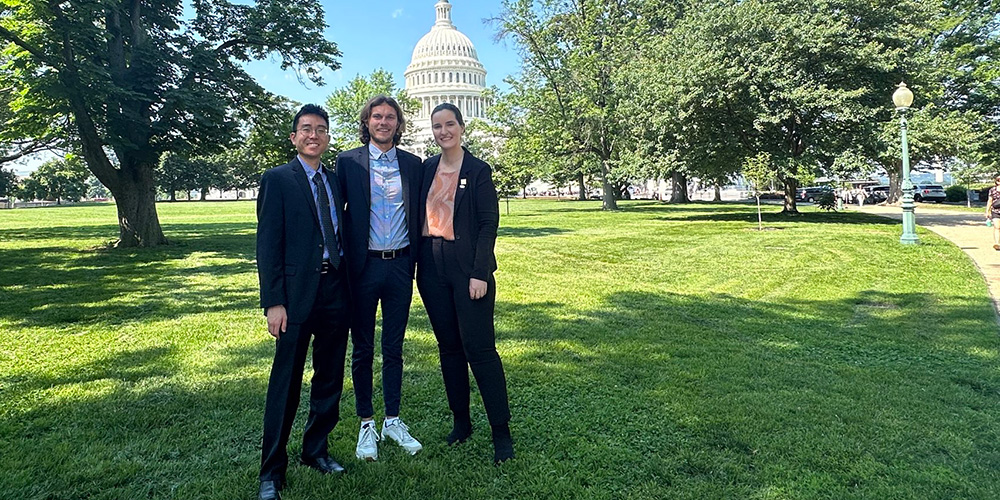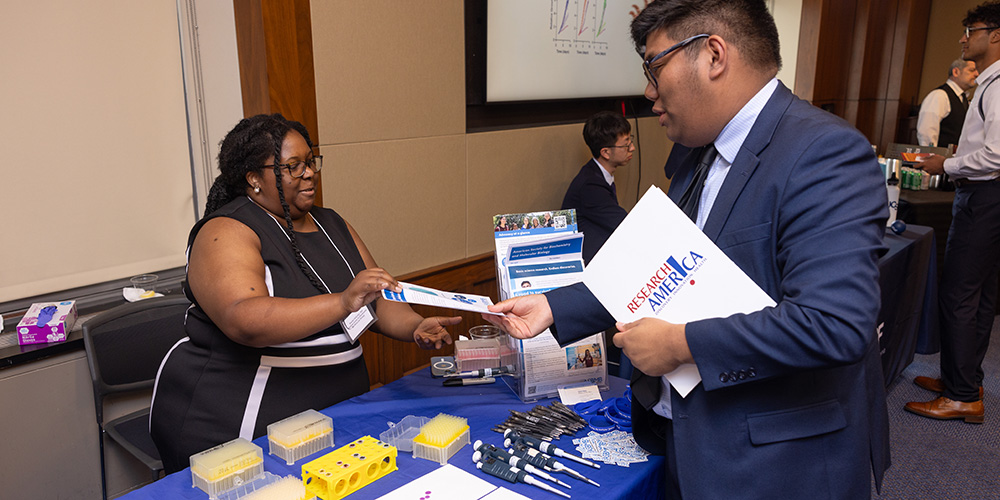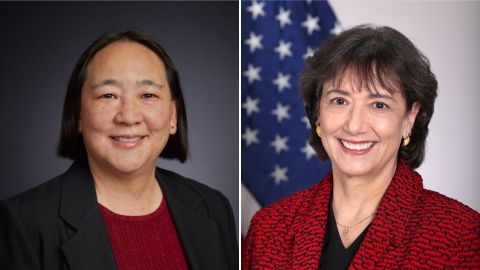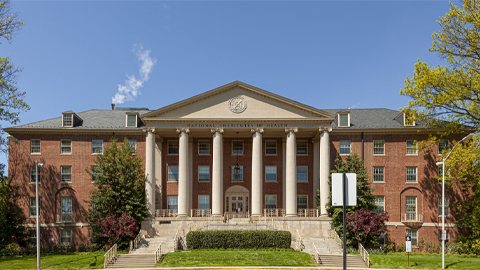ASBMB and advocacy: What we accomplished in 2024
The American Society for Biochemistry and Molecular Biology public affairs team and the Public Affairs Advisory Committee have been busy this year advocating for the BMB community. From working with federal agencies to bring funding opportunities to scientists to advocating for the highest-possible increase in research funding for the National Institutes of Health and the National Science Foundation, the ASBMB has made sure that fundamental research remains a priority.
Throughout the year, the ASBMB continued its advocacy efforts by responding to proposed policy changes at federal science agencies, training the next generation of science advocates and monitoring structural changes at the federal level.
Here’s a snapshot of ASBMB advocacy activities in 2024.
Hill Day
In May, members of the PAAC and several Advocacy Training Program delegates went to Capitol Hill to advocate for increased funding for NIH and other key federal science agencies. They held a total of 67 congressional meetings. PAAC members also spoke about the importance of basic scientific research and the need to support the next generation of scientists.
While committee members met with their elected officials, more than 200 ASBMB members participated in a letter-writing campaign advocating for increased budgets for key science agencies.

Finding the Funds
The public affairs department hosted nine Finding the Funds webinars highlighting funding and training opportunities offered by private organizations, federal agencies and NIH institutes including the Department of Energy, the Department of Defense, the National Cancer Institute and the National Science Foundation. Attendees were able to ask questions and engage with speakers from funding agencies. If you missed these informative webinars, you can watch recordings here.
Congressional Life Sciences Fair
At the Congressional Life Science Fair, representatives of the ASBMB emphasized the importance of basic science research by offering hands-on demonstrations of CRISPR and pipetting by number to congressional staffers.

Advocacy Training Program
Ten members participated in the ASBMB summer Advocacy Training Program. Delegates worked on state and local advocacy issues that included establishing a science and technology committee in Maryland and supporting BMB scientists who are neurodivergent. The delegates wrapped up the program with posters presentations at the ATP showcase.
Comment letters and statements
The PAAC curated 13 responses to federal science agency requests for information leading to a number of wins for the year.
- NIAID’s plan to prioritize basic science research
- Federal STEM education Strategic Plan
- Title IX definitions
- NIH Fellowship review
- Office of Science and Technology Policy Dual Use Research Implementation plan
- National Academies of Science, Engineering and Math Caregiving Report
- H-1B Visa Modernization
Additionally, ASBMB produced 9 statements on topics including President Joe Biden’s budget, the importance of funding the National Science Foundation, and the draft House Labor, Health and Human Services appropriations bill for fiscal year 2025.
NIH reform
Outgoing Rep. Cathy McMorris Rodgers, R-Wash., published a report in June urging restructuring of the NIH, and opened a comment period to gather community responses. The proposed changes to the NIH include consolidating the NIH’s 27 institutes and centers into 15, capping funding engagements to three and instilling term limits on NIH leadership.
The ASBMB responded to Rep. Rodgers’ request for information on the proposal, recommending that the NIH prioritize basic science research and develop an agency-wide strategy for education and training, and that the National Institutes of General Medical Sciences remain fully funded.
As legislators continue to consider structural changes to the NIH in the 119th Congress, the ASBMB public affairs team plans to continue its advocacy for basic science research and increased and sustained funding for the scientific enterprise.
Enjoy reading ASBMB Today?
Become a member to receive the print edition four times a year and the digital edition monthly.
Learn moreGet the latest from ASBMB Today
Enter your email address, and we’ll send you a weekly email with recent articles, interviews and more.
Latest in Policy
Policy highlights or most popular articles

ASBMB honors Lawrence Tabak with public service award
He will deliver prerecorded remarks at the 2025 ASBMB Annual Meeting in Chicago.

Summer internships in an unpredictable funding environment
With the National Institutes of Health and other institutions canceling summer programs, many students are left scrambling for alternatives. If your program has been canceled or delayed, consider applying for other opportunities or taking a course.

Black excellence in biotech: Shaping the future of an industry
This Black History Month, we highlight the impact of DEI initiatives, trailblazing scientists and industry leaders working to create a more inclusive and scientific community. Discover how you can be part of the movement.

ASBMB releases statement on sustaining U.S. scientific leadership
The society encourages the executive and legislative branches of the U.S. government to continue their support of the nation’s leadership in science.

‘Our work is about science transforming people’s lives’
Ann West, chair of the ASBMB Public Affairs Advisory Committee, sits down Monica Bertagnolli, director of the National Institutes of Health.

Applied research won’t flourish without basic science
Three senior figures at the US National Institutes of Health explain why the agency remains committed to supporting basic science and research.

